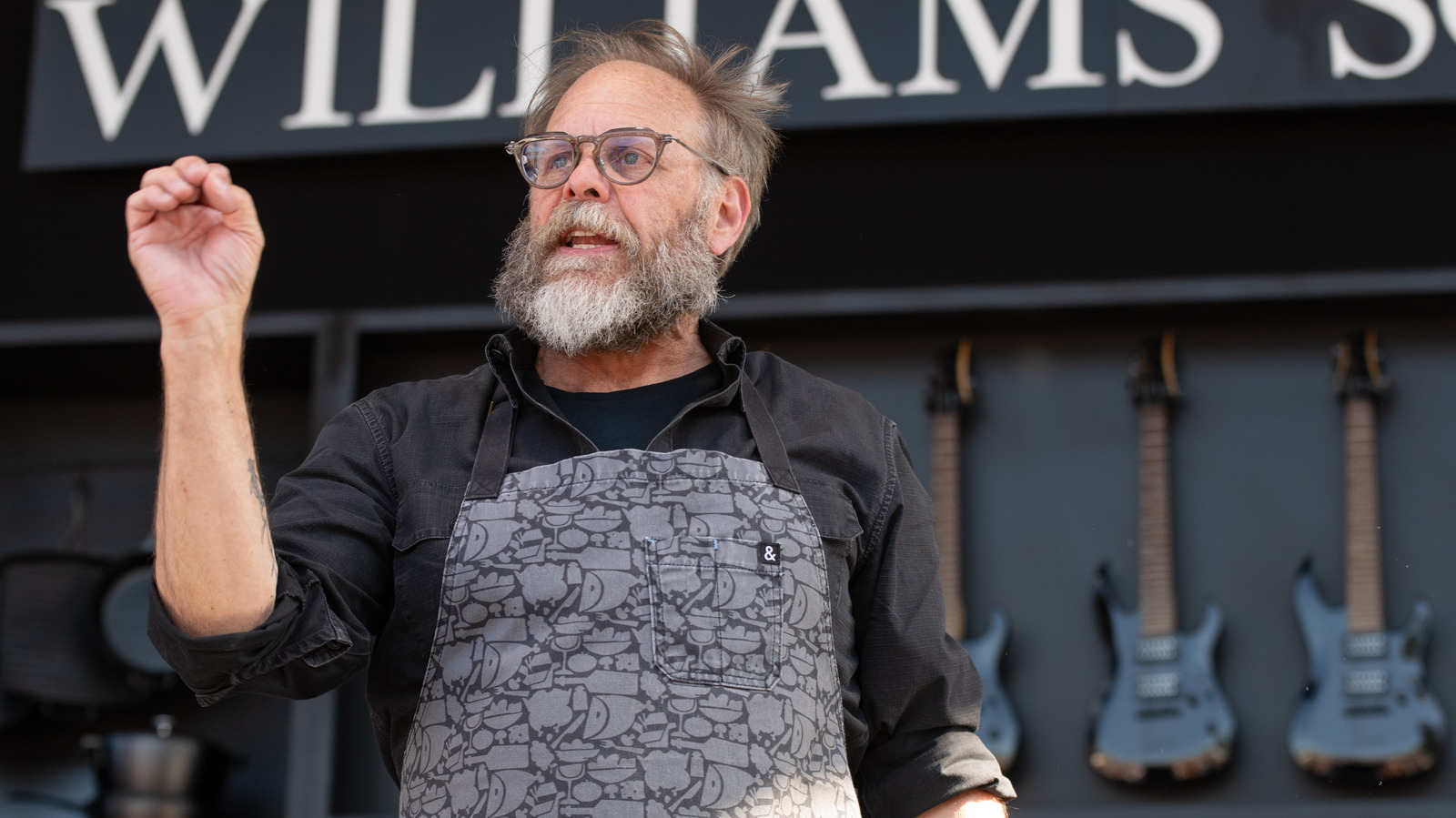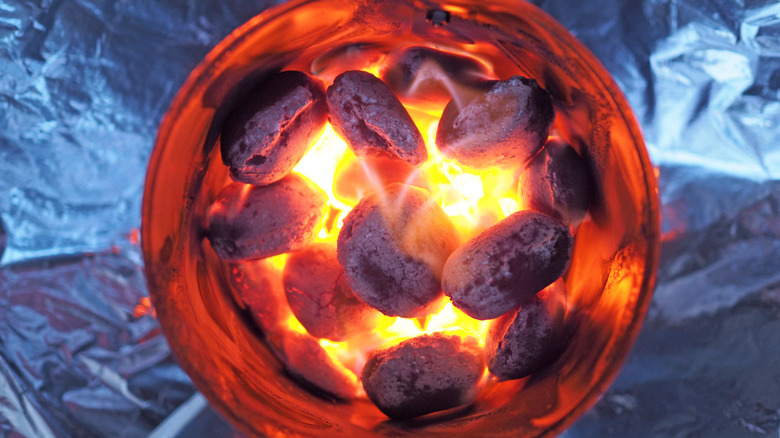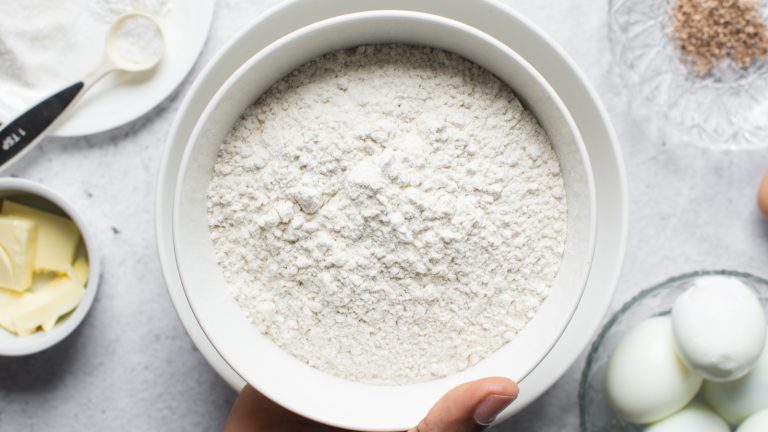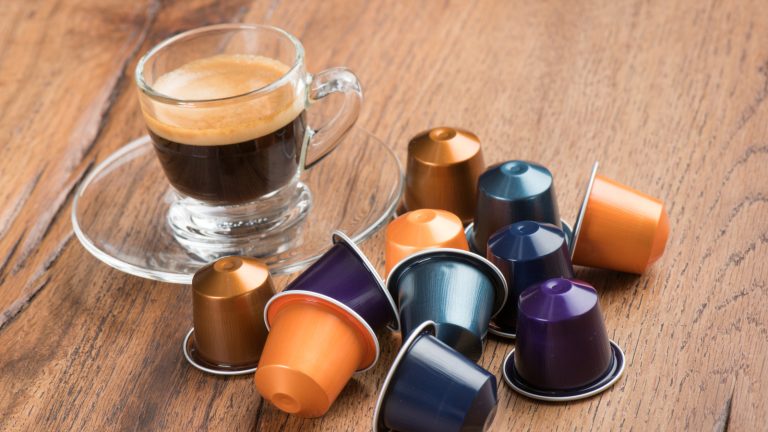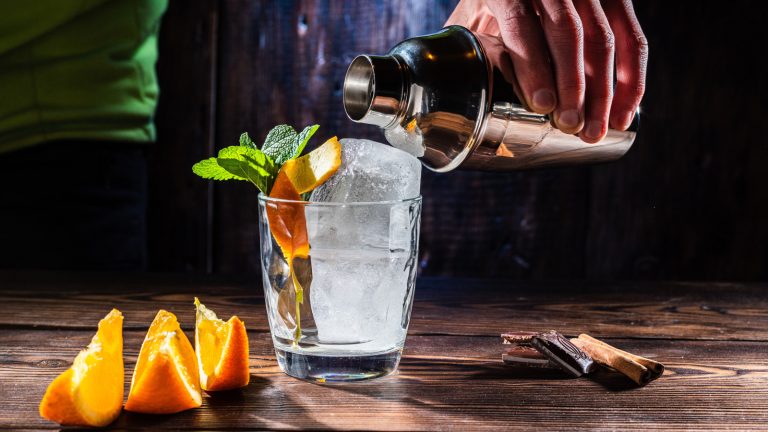Charcoal grilling isn’t just about the joy of cooking out in the sun. Anyone who’s had a burger off the grill versus an indoor griddled one can speak to the succulent smoky difference. But there’s smoky in a good way, and smoky in a “better throw this out” way. Oftentimes, that difference can come down to the use of lighter fluid and its noxious, chemical odor that can permeate food even after its initial vapors burn off.
If you want to avoid using lighter fluid, but still need to get a fire burning in time for dinner, Alton Brown has a helpful hack posted on his Instagram. Instead of dousing a pile of charcoal with lighter fluid, squirt a small amount of cooking oil on some newspaper instead. Crumple that newspaper into a wad, place it under a charcoal chimney starter, load up the hopper of your chimney with charcoal, and then light the paper. Fellow Food Network host Michael Symon also swears by a starter chimney for perfect steaks, and famed grill master Bobby Flay recommends one for anyone hosting a barbecue. Your charcoal will be white hot and ready for cooking in about 20 to 30 minutes, just enough time to brush up on any other grill tips you might need. And besides being an easy way to light your coals, it ensures they won’t smell like lighter fluid. That means your food won’t either.
The science behind a chimney and some cooking oil
When it comes to live fire cooking, the name of the game is airflow. Fire needs oxygen, and a charcoal chimney funnels that oxygen all around your charcoal as it lights, getting it hotter much faster than if that same charcoal were dumped in a pile on the bottom of your grill. The coals are held above ground by a basket, surrounded by air holes. Below the basket, you light some crumpled-up newspaper, directing the fire upward into the chimney, quickly igniting the charcoal.
Even with the chimney’s help, there’s a common pitfall to avoid, and once again, it’s all about airflow. If the paper is balled up too tightly, there’s no room for oxygen. It won’t stay lit, and you’ll waste match after match trying to restart the flame. If the wad is too loose, it will burn out before the charcoal has a chance to catch. But if you saturate even a little bit of the newspaper with cooking oil, it will burn slowly and steadily, giving the charcoal plenty of time to get going.
Most importantly, this method keeps the oil off your charcoal. The reason why lighter fluid can affect the taste of your food is that it is applied directly to the coals. Charcoal is dry, porous and loves to absorb moisture, so that lighter fluid can get in deep and keep burning even when you might think it’s already been completely vaporized. By keeping the oil in the paper, it’s spent well before its time to get the food even close to the grill.


